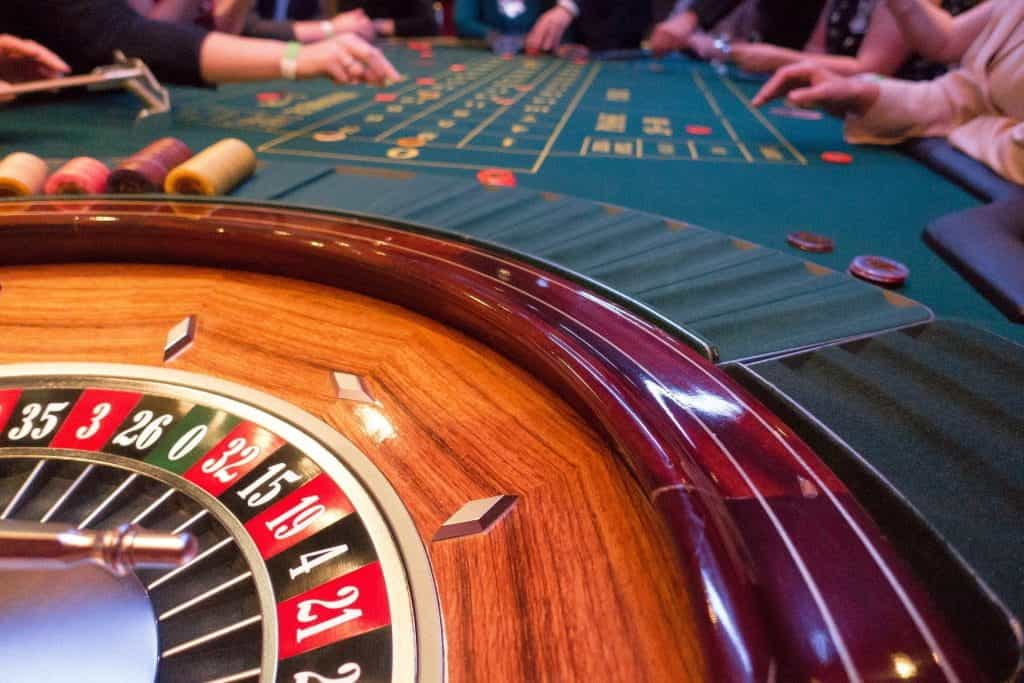Virginia Report Weighs Casino Legalization
A report published by the Virginia General Assembly’s research agency has found that casino legalization would have a positive economic impact in the state. The study, created by the Joint Legislative Audit and Review Commission (JLARC) based its findings on the possibility of five projected casinos around the state.

A government-approved report into expanded gambling in Virginia has predicted positive economic advantages of casino legalization. ©Stux, Pixabay
Gambling expansion is expected to be a hot topic in Virginia’s next legislative session, with many lawmakers looking to capitalize on the national trend to ease gaming laws. The new study was commissioned to help legislators form an opinion on the issue, and took into account what impact casino developments and online gambling would have primarily on the state’s economy.
Next year will see the second voting of Senate Bill 1126, which seeks to allow the construction of five new casinos in Bristol, Danville, Norfolk, Portsmouth, and Richmond. According to the bill, the legal casino industry would be regulated by the state Lottery Board.
Virginia first passed Bill 1126 earlier this year, not only seeking to legalize casino gambling but also sports gambling. It will need to be passed once again in 2020 in order to be approved. While this means the prospect is still uncertain, this hasn’t stopped operators negotiating deals with towns to go into effect in the event of legalization.
The JLARC report found that the five proposed casinos are projected to raise about $970 million in gaming revenue and around $260 million in gaming tax revenue per year if taxed at a rate of 27 percent. In comparison, the Virginia Lottery generates over $600 million in tax revenue annually once prizes are paid.
The sports-betting market was also considered in the report, with estimations finding the state could generate up to $55 million in annual gaming tax revenue, whereas online casino gaming could generate about $84 million each year.
The appeal of introducing sports wagering is that rolling out the necessary infrastructure would be quicker than casino construction. If the proposed expanded gambling measures were to include sports wagering and online gambling, the state could expect to raise $367 million annually.
It’s been estimated that roughly one-third of the total casino revenue would be generated by out-of-state visitors. This would be especially important to the proposed Danville and Bristol casinos because of their near-border locations. With each casino expected to employ at least 1,000 people, their positive impact on the jobs market has also been highlighted.
Concerns About Expanded Gambling
Virginia is known to be one of the strictest anti-gambling states. Aside from the state lottery, only charitable gaming and pari-mutuel wagering on horse racing is allowed. Most of the revenue generated from these activities funds Virginia’s K-12 education.
The report found that if expanded gambling were to be introduced, it is likely that these education-funding proceeds would likely decline by 3.6%, or $30 million. This is because the pre-existing industries are expected to lose funds, with horse racing revenues predicted to decline by a staggering 45%.
It is possible that lobbyists for the state’s horse racing industry will not support legalization unless the state paves the way for “racino” establishments over a free-market industry. One General Assembly member Senator Tommy Norment expressed doubts over the viability of this direction.
“It is not a simplistic issue; ‘Okay, the general assembly’s going to authorize casino gaming, and go to it’. And I don’t know if we can just ‘go to it’ with a free-market competitive situation.”– Senator Tommy Norment, Majority Leader of Virginia General Assembly
Other concerns around introducing expanded gambling to Virginia is both the societal and financial costs of the possible rise in problem gambling. The report states that while research does not consistently demonstrate that problem gambling rises after expanded gambling, it will still be necessary to factor in the cost of additional preventative programs in the state budget.
The Recommendations
While the JLARC report did not provide a recommendation on whether or not to progress with expanded gambling, it did provide a list of recommendations that the General Assembly should take into account to address the aforementioned concerns. They include:
- Applicants for a gaming license must submit a responsible gaming plan as part of their application and require casino operators to obtain accreditation for responsible gaming practices
- Virginia’s gaming oversight agency must develop and administer a voluntary self-exclusion program and implement the program before any casinos open
- The state should first conduct an ongoing evaluation of problem gambling in Virginia and the effectiveness of the state’s prevention and treatment efforts
- The state should amend the Appropriation Act to establish a dedicated stable funding source for problem gambling prevention and treatment, even if gaming is not expanded
- Company’s applying for a casino operator’s license, as well as employees responsible for overseeing and managing the company’s operations and finances, must submit to in-depth background and financial investigation in order for the company to qualify for a casino license
- An independent consultant, hired by the state, must assess the accuracy and reasonableness of the projected financial, economic, and other benefits included in casino development proposals prior to selecting a winning proposal
While the five proposed casinos have already been approved by State Governor Ralph Northam, the bill must be approved by residents of the communities where the casinos are to be introduced. If the legislators pass the bill in 2020, Virginia’s residents will have the opportunity to vote it in November 2020.



